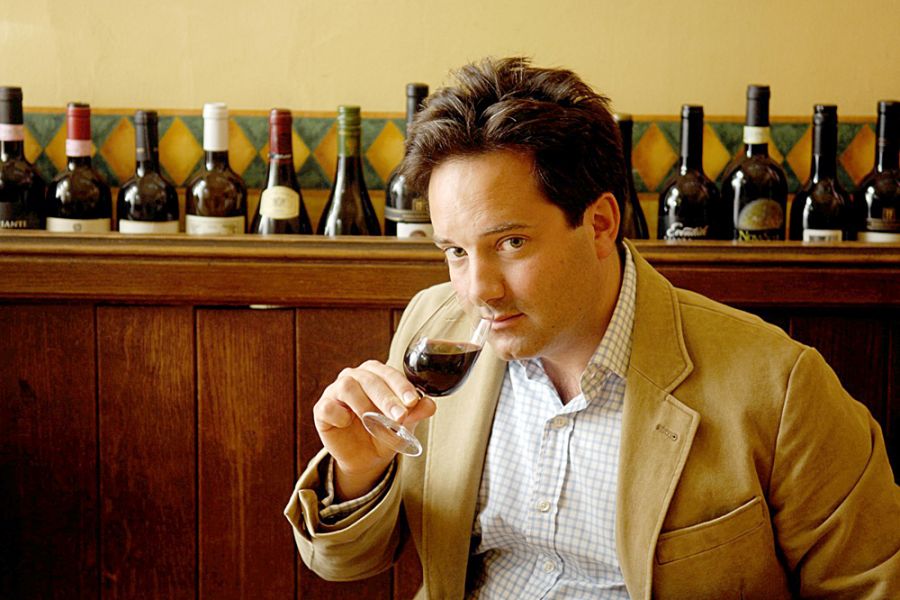Last Call: Will Lyons
International writer offers thoughts on Oregon
Will Lyons is an award-winning wine writer, author, journalist and broadcaster. For more than a decade, he has published a weekly column on wine, formerly in The Wall Street Journal and now The Sunday Times.
Generally speaking, what do Europeans think of (or even know of) Oregon wine?
Golly! I don’t think I can claim to know the thoughts of 750 million people. My father was a farmer, and he always associated the region with wheat. I’m not sure how aware the general public is of Oregon wine, but certainly among wine people I have spoken to, Oregon is undoubtedly known for its Pinot Noir, which if you had to rate on a quality scale would be somewhere between good New Zealand Pinot Noir and good red Burgundy. And like New Zealand, people are aware that this is a region that in quality terms has come a long way, very fast. For my own part, I have always thought the winemakers I have met from Oregon are, on the whole, a cheerful bunch, quick to smile and offer a hand of friendship. I remember a particularly memorable evening with Myron Redford when he came to Scotland. We were staying in a large house at the foot of the Highlands, and we ended up tasting all sorts of his wines, including his Gewürztraminer, which if served blind, I would have placed in Alsace.
Which wine region are you most excited about right now?
Piedmont feels like it is on the cusp of achieving something special. Some of the wines I have tasted in London recently have been sensational. At its best, Nebbiolo produces a wine which reminds me of Pinot Noir with that familiar smell of rose petals and cherries. I wouldn’t be telling the truth if I didn’t admit to be excited about Bordeaux; I’m always excited about this region. Pomerol has never produced better wines; and who doesn’t get excited about the wines from the northern Medoc?
How do the terms “New World” and “Old World” really play into the flavor and quality of wines?
It may sound unfashionable, but I find these terms quite useful. I would associate Old World with a style of winemaking that is restrained, which favors moderate alcohol levels, present tannins, taut acidity and ability to age. Perhaps these wines are more savory. Another term might be “cool climate.” I associate New World with big, bold flavors, ripe fruit and a generous dose of alcohol. These wines are ready to drink. I recognize these are, of course, enormous generalizations. Planting at altitude, picking early and advances in viticulture mean that you can make an Old World-style of wine in a New World country and vice versa; but I still think, as a broad brush, they are useful for the consumer. If I had to place Oregon, I would say it has a foot in the Old World, although, as I write this in Devon, England, not far from the house of Sir Francis Drake, I imagine he might have something to say about that!
I would also add that it is perfectly legitimate to like both styles, and it is silly to suggest otherwise. One night, I might want to sip a straightforward Zinfandel from California; another night, I might hanker after the complexity of an aged red Burgundy. I enjoy vintage Champagne, but I can also enjoy a glass of Australian sparkling wine. I don’t see any conflict between Old and New world styles. Wine is a broad church, and its diversity is something to be celebrated.
If you were to own a winery, where would it be? Which varietals would you produce? What would you name your winery? If you are not the winemaker, who’d you hire?
I grew up on a farm in England, and Sundays were always spent mucking out the pigs, feeding the cows and generally getting our hands dirty. I remember it being hard work, and in the winter months, freezing, so I don’t have any romantic connotations regarding the realities of agriculture. I have also never hankered after owning a winery; I suspect I could make half decent wine if I put my mind to it, but selling it is a different matter. That’s the hard part.
But our family has 40 acres in Southern England, and recently, I have been thinking about planting vines there. I would grow the traditional Champagne varieties; I’m not sure what I would call it, but I would certainly have a go at making the wine.












